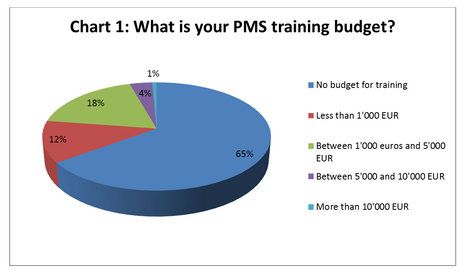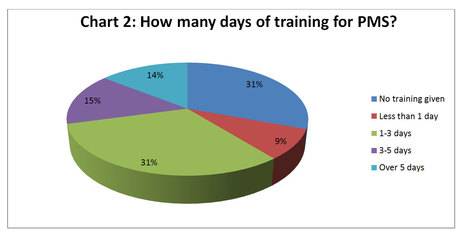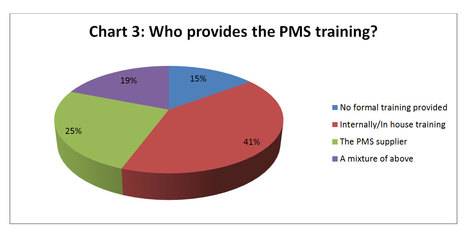
Member Login |
Hotels are failing to invest in training for Property Management Systems
publication date: Oct 10, 2012
|
author/source: Hilary Catherine Murphy and Karolin Kokaz Pucciani
Hotels are failing to invest in training for Property Management Systems (PMS) | By Hilary Catherine Murphy and Karolin Kokaz Pucciani
The Property Management System (PMS) is the key technology for hotels and a significant source of not only customer data but also operational data that can help the strategic and operational decision making of hotels. Unfortunately, as reported in previous research by the same authors, most PMS systems, and their rich data, have not been exploited to their full potential. This current study undertaken at Ecole Hoteliere de Lausanne investigates the investment in training in the PMS and the relationship between training and business performance at property level. Preliminary results are presented here. About 150 mid-scale and up-scale hotels around the world answered a questionnaire investigating the training on the PMS (measured by number of days, budget, and training provider) and performance (measured by occupancy, ADR, GOR). Most hotels (65%) stated that they had no budget for training on the PMS in 2011 and 32% of hotels offered no training at all to their employees on the PMS. 40% of the hotels surveyed provided up to 3 training days per year (Chart 2). Most of the training is conducted internally, rather than using the PMS providers. In cases where there is no training, the new employees are simply "shown the ropes" by their supervisors (Chart 3). As can be seen in chart 1 below, there is little/ no budget allocated to training.
This research supports that the (previously reported) under-utilization of the PMS may be due to the lack of training and budget! This research indicates that the training provided is mostly internal and not with the PMS supplier.
The hotels in our sample show higher occupancy levels when hotels allocate more budget to training for PMS. Also, occupancy levels are higher when a combination of BOTH in- house training PLUS training through the PMS supplier is employed.
When a cluster analysis is conducted, the cluster which included hotels which offered training to their employees through a combination of internal and PMS supplier training AND those which have a substantial amount of budget allocated AND more days training had the highest average occupancy levels.
When similar analysis is carried out using the gross operating revenues of hotels as the performance indicator, statistically significant relationships were obtained between PMS training budget and hotel revenues (significant positive correlation and high regression coefficient). This indicates that as PMS training budget is increased, hotel revenues increase as well and in a much higher ratio than the input budget. Revenues of hotels are much higher as the PMS training budget went above 5000 Euros per year.
These results show that there is still a lack of the optimal use of the PMS in hotels as there is not enough training for its use provided to the employees. Early indications from this ongoing research project show that effective management of the PMS training resources (e.g. training days, budget) may result in increased revenues for the hotels.
About the authors:
Dr Hilary Catherine Murphy has a PhD in the diffusion of information and communications technology from the University of Wales; an MPhil, also from the University of Wales; a post-graduate diploma in business information technology and a Bachelor degree in business administration, marketing and law from the University of Strathclyde; and a diploma in data processing from Louisiana State University in the USA Dr Karolin Kokaz Pucciani has a PhD in Environmental Sciences and Engineering and a Master of Science degree in Engineering Sciences, both from Harvard University, and a BSc degree in Chemical Engineering from Bosphorus University in Turkey. This article is part of a wider project entitled " An investigation of proper usage (training, utilization, integration) of technology, with a focus on Property Management Systems (PMS), and its link to hotel performance" funded by HES SO, Switzerland
Ecole hôtelière de Lausanne (EHL) offers a university education to students with both talent and ambition, who wish to access leading-edge careers in the hospitality professions at international level. With its emphasis on training the future high achievers of hospitality management, EHL regularly adjusts the content of its three programmes in line with new technologies and market trends. Since its foundation in 1893, Ecole hôtelière de Lausanne has educated over 25,000 hospitality executives, representing today a valuable network of contacts for all the members of the EHL community. 1,800 students from over 80 nations currently enjoy the unique study and living environment of Ecole hôtelière de Lausanne. CONTACT
Hilary Catherine Murphy ORGANIZATION
Follow us on:
|
Search the SiteEducator Profiles |



